



In today’s complex financial landscape, middle market and larger companies need a bank that understands their business and their industry. Key’s deep market expertise and relationship-led approach allow us to recognize opportunities and deliver strategic financial solutions that align with our clients’ goals.
Why Clients Choose Key
Over its 200-year history, Key has become one of the nation's largest bank-based financial service companies.

Capital and Lending Access
Flexible financing and
capital markets expertise
to power growth and investment.

Payments and Technology
Streamlined platforms and
real-time guidance to help
mitigate risk and manage liquidity.

Key Wealth Management
Trusted expertise, strategies
and insights to grow,
manage, and preserve wealth.
Our Services
Whether it’s access to capital, industry insights or guidance to drive growth, Key provides resources businesses rely on to compete in a changing economy. See how the strength of a top financial institution and hands-on service of a leading regional bank can help you take your business to the next level.
Empowering businesses that shape the future.
We’re proud to work with commercial clients, businesses and organizations whose innovative ideas and execution have a lasting impact on people’s lives.
Stephanice Washington: Being homeless, not knowing when you got to go, taking your income, spending the whole income up to have a room for a night or two or three. Then having to eat out. Wasn't able to cook and stuff. Having to eat out. You know, that was a lot. I lost everything. I lost everything but the clothes I had on my back.
Robert L. Likes: KeyBank has an unwavering, deep commitment to affordable housing. Our mission and our objectives are to be a national leader in affordable housing, to help the bank always achieve an outstanding CRA rating. To be a major contributor to our community benefits plan and to help our clients and communities thrive.
Erica Haize: We need more affordable housing in this community. So, people are struggling with that a lot. We saw the need of helping people be part of a great community.
Kevin Loos: NRP made an initiative into housing and health care, and so we've created a few projects across the nation, partnering with hospitals to provide housing and health care. You’re next to the healthcare community, next to primary care doctors, next to emergency room help, and really it becomes a more of a wraparound type of service, being right next to the campus.
Robert L. Likes: It's adjacent to a hospital to help with healthy initiatives. It also has community space within the Affordable Housing project that provides job counseling, financial literacy training, digital training, all for the betterment of the tenants and the surrounding community, to help really uplift lives.
Stephanice Washington: The day I got the phone call that I could come in and pick up my keys, was the best thing that ever happened for me.
Erica Haize: This was like a steppingstone for them. Some of them, like I said, were homeless. They start living here, their lives change. Their family can see that their life is changing. And to come in a building like this, and having something so nice and brand new for the first time, it's life changing.
Stephanice Washington: Before I came to Via Sana, my whole check went on my light, my gas, my rent. Since I've been at Via Sana, I'm able to save up, so I'm able to go to Walmart and buy me a month's worth of food from my income now.
Erica Haize: I hope we can partner more so we can keep making a change in the community.
Robert Likes: Affordable Housing changes lives. There are so many positive, healthy outcomes and economic upward mobility, when you have a permanent residence that is safe, decent, clean, affordable, that is your home.
Stephanice Washington: My new apartment is my serenity, my peace, and my home.
Recent Deals
Key brings extensive experience in closing deals across industries to help clients strengthen their market position and achieve greater success.
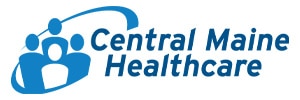
affiliated with
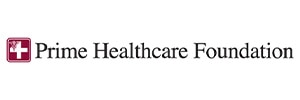
Sell-Side Advisor
Summary
Cain Brothers, a division of KeyBanc Capital Markets, served as exclusive sell-side advisor to Central Maine Healthcare in its affiliation Prime Healthcare Foundation.
Cain Brothers was engaged to assist in the negotiations and affiliation process due to its domain expertise and understanding of the New England healthcare market. The affiliation will help achieve Central Maine and Prime’s joint long-term commitment to deliver the highest quality, most advanced health care to communities across central, western, and mid-coast Maine. The agreement includes continued local governance and management, ongoing community commitment and significant capital investment in the region.
Central Maine Healthcare is an integrated delivery system serving 400,000 people in central, western and mid-coast Maine. With over 600 physicians and advanced practice professionals in more than 40 locations, CMH includes Central Maine Medical Center, a Levell III Trauma Center in Lewiston, as well as critical access facilities, Bridgton and Rumford hospitals, and two long-term care communities.
Prime Healthcare is a health system operating 44 hospitals and more than 300 outpatient locations in 14 states, providing over 2.6 million patient visits annually. It is one of the nation’s leading health systems with nearly 45,000 employees and physicians. Fourteen of the Prime Healthcare hospitals are members of the Prime Healthcare Foundation, a 501(c)(3) not-for-profit public charity.

$5 Billion
Senior Secured Credit Facility
Joint Lead Arranger
Co-Documentation Agent
Summary
On January 30, 2026, KeyBanc Capital Markets served as Joint Lead Arranger and Co-Documentation Agent on a $5 billion Senior Secured Revolving Credit Facility for SM Energy Company. Proceeds will be used for general corporate purposes.

acquired by

Sell-Side Advisor
Summary
Cain Brothers, a division of KeyBanc Capital Markets, served as exclusive financial advisor to National Radiology Solutions in its sale to Premier Radiology, a portfolio company of Grovecourt Capital Partners.
Cain Brothers developed a relationship with the founder, Robb Kolb, and discussed potential transaction alternatives. Collectively, the team decided to run a targeted process due to preemptive interest, with the option to expand into a broad sale if needed.
Premier Radiology is a leading provider of teleradiology solutions in outpatient settings across the United States, delivering fast, accurate, and secure medical image interpretations. Founded in 2006 and headquartered in Deerfield Beach, Florida, the company interprets over three million medical images annually through a network of more than 165 board-certified, fellowship-trained radiologists.
Grovecourt is a private equity firm based in West Palm Beach, Florida, specializing in investments in founder-led and family-owned businesses in the lower middle market business services and healthcare services sectors.

acquired by
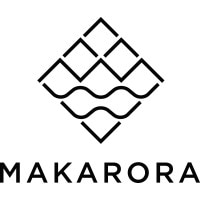
Sell-Side Advisor
Summary
On January 27, 2026, Makarora Management LP (Makarora) announced that, together with Ares Alternative Credit funds (Ares), it completed the previously announced all-cash acquisition of Plymouth Industrial REIT, Inc. (Plymouth), valued at approximately $2.1 billion. Pursuant to the terms of the transaction, Plymouth shareholders will receive cash consideration of $22.00 per share. With the completion of the acquisition, Plymouth will no longer be traded or listed on any public securities exchange.
KeyBanc Capital Markets served as a Sell-Side Advisor to Plymouth Industrial REIT.
Plymouth Industrial REIT, Inc. (NYSE: PLYM) is a full-service, vertically integrated real estate investment company focused on the acquisition, ownership and management of single and multi-tenant industrial properties.
Makarora Management LP is a New York-based investment management firm established in 2024 and led by senior professionals with extensive experience investing through global property market cycles. The firm seeks to provide differentiated capital solutions to the commercial real estate sector spanning a wide range of investments, including opportunistic credit, structured capital, and equity.
Ares Management Corporation (NYSE: ARES) is a leading global alternative investment manager offering clients complementary primary and secondary investment solutions across the credit, real estate, private equity and infrastructure asset classes. As of September 30, 2025, Ares Management Corporation's global platform had over $595 billion of assets under management, with operations across North America, South America, Europe, Asia Pacific and the Middle East.

$859.3 Million
Initial Public Offering
Joint Bookrunner
Summary
On January 22, 2026, KeyBanc Capital Markets served as Joint Bookrunner on EquipmentShare.com Inc.’s (EquipmentShare or the Company) $859.3 million Initial Public Offering of 35,075,000 shares, including overallotment.
EquipmentShare is a digitally native equipment rental platform serving primarily non-residential construction end markets. Enabled by its technology platform, T3, which provides real-time telematics, management, and predictive maintenance of its fleet, the Company offers a tech-forward, seamless equipment rental experience. EquipmentShare serves customers with an integrated solution designed to make their jobsites more efficient, safer, and lower cost.

$500 Million
Senior Notes
Co-Manager
Summary
On January 8, 2026, KeyBanc Capital Markets served as Co-Manager on a $500 million Senior Notes offering for Murphy Oil Corporation. Proceeds will be used to repay existing indebtedness and for general corporate purposes.

$1.05 Billion
Senior Secured Credit Facilities
Summary
On November 3, 2025, KeyBanc Capital Markets Inc. (KBCM) successfully closed $1.05 billion of Senior Secured Credit Facilities (the Facilities) for Apex Clean Energy (Apex). The Facilities are comprised of a $500 million Term Loan Facility, a $400 million Letter of Credit Facility, and a $150 million Revolving Credit Facility. Proceeds will be used to fund Apex’s next phase of growth. KBCM acted as Coordinating Lead Arranger.
Apex Clean Energy Overview
Apex Clean Energy was founded with a singular focus: to accelerate the shift to clean energy. Through origination, development, construction, and operation of utility-scale wind, solar, and storage facilities and distributed energy resources, Apex is expanding the renewable frontier across the United States. The company’s mission-driven team uses a data-focused approach and an unrivaled portfolio of projects to create solutions for the world’s most innovative and forward-thinking customers.

acquired

Buy-Side Advisor
Summary
Cain Brothers, a division of KeyBanc Capital Markets, served as exclusive financial advisor to Tenor Health Foundation in its acquisition of Commonwealth Health, an affiliate of Community Health Systems, Inc. (NYSE: CYH). Cain Brothers also arranged debt financing associated with the transaction.
Tenor Health acquired Commonwealth Health, a subsidiary of Community Health Systems. Commonwealth is a three-hospital health system in northeast Pennsylvania that includes Regional Hospital of Scranton (186 beds), Moses Taylor Hospital (122 beds) and Wilkes-Barre General Hospital (369 beds). Rosemawr Management provided acquisition financing.
With a mission rooted in advancing equitable and innovative care, Tenor Health Foundation was formed to identify, own, manage, and turn around financially challenged hospitals. Tenor Health is committed to the needs of its communities, providing compassionate care and delivering quality patient outcomes.
Community Health Systems operates 70 affiliated hospitals in 14 states, as well as more than 1,000 sites of care, including physician practices, urgent care, freestanding emergency and occupational medicine clinics, and imaging, cancer and ambulatory surgery centers. CHS reported consolidated annual revenues of over $12 billion.
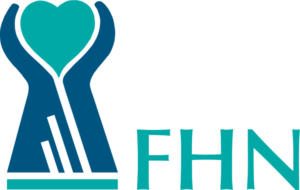
affiliated with
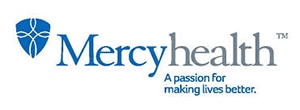
Sell-Side Advisor
Summary
Cain Brothers, a division of KeyBanc Capital Markets, served as financial advisor to FHN in its affiliation with Mercyhealth.
After years of discussion, FHN elected to pursue a change-of-control transaction with the goals of improving the organization’s cost structure and injecting outside capital. Cain Brothers led a competitive process, resulting in two fully negotiated letters of intent. The Board selected Mercyhealth, out of Rockford, Illinois, who committed to contribute a minimum of $100 million over five years. The transaction was signed on September 30, 2025, and closed on December 31, 2025.
FHN is a regional healthcare system serving northwest Illinois and southwest Wisconsin. FHN is headquartered in Freeport, Illinois and consists of a 100-bed full-service hospital known as FHN Memorial Hospital, 16 outpatient sites that treat over 45 specialties, a comprehensive Cardiovascular Center and a leading Cancer Center. Over 1,500 people visit FHN each day, and FHN is one of the leading employers in northwest Illinois.
Mercyhealth is an Illinois not-for-profit system serving northern Illinois and southern Wisconsin. Mercyhealth operates five acute-care hospitals with over 500 beds, a large multi-specialty physician group, over 85 primary and specialty care clinics, a rehabilitation hospital, and a significant home health and hospice business. Mercyhealth was created after the merger of Mercy Health in Janesville, Wisconsin and Rockford Health System in Rockford, Illinois. Mercyhealth produced $1.3 billion in revenue in 2025.

acquired

and was recapitalized by

and

$1.07 Billion
Senior Secured Credit Facilities
Joint Lead Arranger
Joint Bookrunner
Administrative Agent
Summary
KeyBanc Capital Markets and Cain Brothers successfully closed the syndication of $1.07 billion Senior Secured Credit Facilities for US Fertility Enterprises, LLC, a portfolio company of Amulet Capital Partners and L Catterton Partners.
Proceeds from the transaction supported the recapitalization of US Fertility, which included a new equity investment led by L Catterton and the Company’s acquisition of Genetics & IVF Institute. The financing was comprised of a $120 million Revolving Credit Facility, an $825 million Term Loan B, and a $125 million Delayed Draw Term Loan.
KBCM was selected to serve as Joint Lead Arranger and Administrative Agent based on Cain Brothers’ expertise in the women’s health space, our long-standing relationship with Amulet Capital Partners, and our best-in-class leveraged finance platform.
US Fertility is the largest fertility group in the U.S., offering a broad range of assistive reproductive technology services and ancillary life sciences offerings. Since 2021, the Company has grown from ~85 physicians across 59 locations to the leading IVF platform in the nation with over 200 physicians across 118 treatment locations and 32 embryology labs.
Founded in 2015, Amulet Capital Partners is a middle-market private equity firm focused exclusively on making investments in the broader healthcare industry. They have $2.7 billion in AUM and are currently investing out of their third fund. Amulet partners with strong businesses across high-conviction, high-growth subsectors within the broader life sciences outsourcing, healthcare provider, and payor and payor services ecosystems.
Founded in 1989, L Catterton is the largest consumer-focused private equity firm in the world, with over $38 billion of equity capital across nine fund strategies in 18 offices globally. They have $38 billion in AUM and have extensive experience in consumer healthcare and multi-site service platforms. L Catterton has an operationally focused value creation approach, augmented by a deep operating team with highly differentiated capabilities.
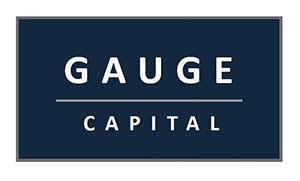
acquired

Buy-Side Advisor
Summary
Cain Brothers, a division of KeyBanc Capital Markets, acted as buy-side advisor to Gauge Capital on its acquisition of Reliable Medical from Seven Hills Capital.
Cain Brothers maintains an ongoing dialogue with Gauge on M&A opportunities and was engaged based on our expertise in the Complex Rehabilitation Technology sector. Cain provided tactical and strategic process-related recommendations and insight, while advising Gauge on valuation and key diligence topics. The mandate further bolsters our credentials in the broader DME sector and as a trusted advisor to private equity firms.
Reliable Medical is a provider of CRT and related mobility and home medical equipment solutions across the U.S. Reliable specializes in the evaluation, fitting, assembly, and service of custom mobility solutions for patients with severe and permanent mobility impairments. The Company has built a strong reputation as a trusted clinical and service partner to patients, referral sources, and payors through its experienced Assistive Technology Professionals and high-touch service model. Reliable was founded in 1989 and is headquartered in Nashville, Tennessee.
Gauge Capital is a middle-market private equity firm based in Southlake, Texas. Gauge invests in five key sectors: business services, food & consumer, government & industrial services, healthcare, and technology. The firm manages more than $3 billion in capital.

Riverplace Apartment Homes
$29.2 Million
Fannie Mae (Fixed-Rate Loan)
Summary
The transaction includes a $29.2 million ($143,098/unit) non-recourse, first mortgage loan secured by a 204-unit apartment complex known as Riverplace Apartment Homes, located in Independence, Oregon. Built in 2015, Riverplace Apartment Homes consists of three-story residential buildings, eight garage buildings, one clubhouse and one car wash situated on 10.13 acres of land. The proposed loan will be used for refinancing the existing debt of the property. The loan is structured with a 35-year term, and subsequent to a five-year interest-only period, amortizes on a 30-year schedule.
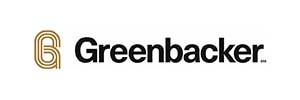
has sold a portfolio of operating DG solar and storage assets to
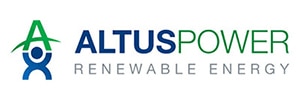
Exclusive Financial Advisor
Summary
KeyBanc Capital Markets, Inc. served as exclusive financial advisor to Greenbacker Renewable Energy Corporation (Greenbacker) on the sale of a diversified operating portfolio of distributed generation (DG) solar and storage assets (the Portfolio) to Altus Power, Inc. Representing one of the largest operating DG portfolios marketed in recent years, the Portfolio includes 237 MW across 101 ground mount, rooftop, and carport sites located in 18 states.
Greenbacker Overview
Greenbacker Renewable Energy Company LLC is a publicly reporting, non-traded limited liability sustainable infrastructure company that acquires and manages income-producing renewable energy and other energy-related businesses, including solar and wind farms. The company also provides investment management services to other renewable energy investment vehicles. Greenbacker seeks to acquire and operate high-quality projects that sell clean power under long-term contracts to creditworthy counterparties such as utilities, municipalities, and corporations. As a long-term owner-operator, Greenbacker strives to be a good steward of the land and a responsible member of the communities in which it operates.
Greenbacker conducts its investment management business through its wholly owned subsidiary, Greenbacker Capital Management, LLC, an SEC-registered investment adviser. The company believes its focus on power production and asset management creates value that can be passed on to shareholders — while facilitating the transition toward a clean energy future.
Altus Power Overview
Altus Power is a leading Independent Power Producer focused on the ownership, operation, and optimization of distributed solar generation assets across the United States. The company operates over one gigawatt of distributed generation assets, including rooftop, ground-mounted, and carport solar systems that serve commercial, industrial, municipal, and community solar customers. Backed by TPG, a global investment firm, Altus Power benefits from significant institutional support and access to capital. The company’s vertically integrated platform, experienced management team, and focus on high-quality distributed generation assets position it as a scaled consolidator and long-term owner within the U.S. solar market.
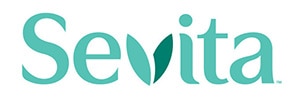
a portfolio company of

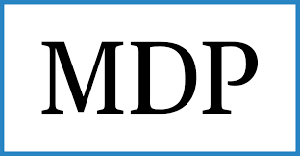
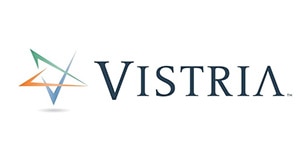
$1.564 Billion
Senior Secured Credit Facilities
$1.275 Billion
Senior Secured Notes
Joint Lead Arranger
Joint Bookrunner
Summary
KeyBanc Capital Markets and Cain Brothers, a division of KeyBanc Capital Markets, Inc., successfully closed a financing in support of Sevita, a portfolio company of Centerbridge Partners, Madison Dearborn Partners, and The Vistria Group.
Proceeds from the financing were used to acquire BrightSpring Health’s Community Living division and to refinance existing indebtedness. The transaction consisted of a $314 million Revolving Credit Facility, a $875 million Term Loan B, a $375 million Delayed Draw Term Loan B, and $1.275 billion of Senior Secured Notes.
Sevita is a national provider of home and community-based services to specialized, complex patient populations with a range of medical, behavioral, and social needs. Since being founded in 1980, the Company has evolved from a single residential program to a diversified network operating across 40 states with 43,900+ individuals served.
Centerbridge Partners is a New York City-headquartered private investment firm with $18 billion of capital commitments and $38 billion of AUM. Founded in 2005, Centerbridge seeks to back strong management teams to drive operational improvements and other value creation strategies.
Founded in 1992, Madison Dearborn Partners is a Chicago-based private equity firm, with $19 billion of committed capital, focusing on the Basic Industries, Financial Services, Healthcare, and Technology & Government sectors.
Headquartered in Chicago and founded in 2013, The Vistria Group is a private equity firm focused on investing in the Education, Financial Services, and Healthcare sectors with $7 billion of AUM across 40+ portfolio companies.

Atkinson Stacks Sunrise Metro
$16 Million
Freddie Mac (Fixed-Rate Loan)
Summary
The transaction includes a $16 million ($73,578/unit) non-recourse, first mortgage loan secured by a proposed 218-unit, affordable, multifamily apartment community known as Atkinson Stacks Sunrise Metro, located in Salt Lake City, Utah. The property consists of an existing 100-unit, four-story structure called Sunrise Metro, with an addition of 18 new units to the second floor (hereinafter referred to as “Phase I”) and new construction of Atkinson Stacks (proposed 100-unit, six-story structure, hereinafter referred to as “Phase II”). The structures are to be connected by an existing one-story common space. The construction/renovation of Phase I has commenced and has an estimated substantial completion of January 2026. The construction of Phase II is scheduled to commence December 2025, with an estimated duration of approximately 18 months for substantial completion in June 2027. The property is situated on a 2.7-acre site. The proposed loan will be used for substantial rehabilitation of the property. The loan is structured with a 16-year term, and subsequent to a one-year interest-only period, amortizes on a 40-year schedule.
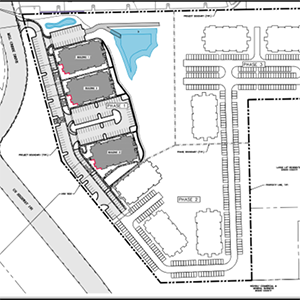
The Cooperative 1581
$17.98 Million
Freddie Mac (Fixed-Rate Loan)
Summary
The transaction includes a $17.98 million ($124,861/unit) non-recourse, first mortgage loan secured by a to-be-built, 144-unit, Low-Income Housing Tax Credit (LIHTC), garden-style apartment complex known as The Cooperative 1581, located in Moab, Utah. The project will consist of three three-story walk-up buildings and will be 100% income- and rent-restricted, targeting households earning between 40% and 80% of the Area Median Income (AMI), with a blended average of 60% AMI. Expected construction completion is scheduled for April 2027. The Subject will be situated on a 5.64-acre site. The proposed loan will be used for construction of the property. The loan is structured with a 15-year term and amortizes on a 40-year schedule.

a portfolio company of

$350 Million
Senior Secured Credit Facilities
Summary
KeyBanc Capital Markets and Cain Brothers, together with the KeyBank Beach Point Direct Lending Program, successfully closed on $350 million of Senior Secured Credit Facilities for Wedgewood Pharmacy, a portfolio company of Partners Group.
The Credit Facilities supported a refinancing of the Company’s existing debt and consisted of a $40 million Revolving Credit Facility and a $310 million Unitranche Term Loan.
Wedgewood, based in Swedesboro, New Jersey, is the nation’s leading compounding pharmacy dedicated to animal health. Since 1991, it has served veterinarians and animals of all species by providing high-quality, customized medications. The Company operates six compounding and outsourcing facilities across the U.S., along with an analytical testing laboratory, ensuring safe and efficient production of tailored medicines.
Partners Group is one of the largest firms in the global private markets industry, with around 2,000 professionals and over $174 billion in assets under management globally. The firm has investment programs and custom mandates spanning private equity, private credit, infrastructure, real estate, and royalties. The firm is based in Switzerland with a primary presence in the Americas in Colorado.

$300 Million
Debentures December 2025
$500 Million
Debentures September 2025
Active Joint Bookrunner
Summary
In December 2025, Wisconsin Electric Power successfully priced $300 million of Debentures maturing in 2029 at a spread of T+42 basis points, with a coupon of 3.950%. The transaction was well received by the market, achieving a minimal new issue concession and an orderbook oversubscription of 5.7 times, significantly exceeding the year-to-date average of 3.9 times. The differential between initial price guidance and final pricing was 28 basis points, which is also above the year-to-date average.
Similarly, in September 2025, the company priced $500 million of Debentures due 2030 at a spread of T+50 basis points for a coupon of 4.150%. This issuance also garnered strong market interest, pricing without a new issue concession and attracting an orderbook oversubscription of 4.9 times. The differential from initial price talk to final pricing reached 30 basis points, surpassing year-to-date averages.
KeyBanc Capital Markets served as Active Joint Bookrunner on both transactions. Proceeds from these offerings are intended to be used to repay existing short-term debt and for general corporate purposes.
About Wisconsin Electric Power Company
Wisconsin Electric Power Company (WEPCO) is a public utility that generates and distributes electricity and distributes and transports natural gas to retail customers in southeastern Wisconsin, including the Milwaukee area, east central Wisconsin, and northern Wisconsin. WEPCO provides wholesale electric service to various customers, including electric cooperatives, municipal joint action agencies, investor-owned utilities, etc. The company serves roughly 1.2 million electric customers and 0.5 million natural gas customers. WEPCO operates as a subsidiary of WEC Energy Group.
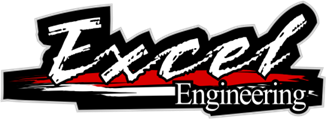
a portfolio company of

acquired by

Exclusive Sell-Side Advisor
Summary
On December 22, 2025, KeyBanc Capital Markets (KBCM) successfully advised Excel Testing and Engineering Holdings, LLC (Excel Engineering, or the Company), a portfolio company of Rock Island Capital (Rock Island), on its sale to Fusion Capital Partners (Fusion).
KBCM was selected to serve as Exclusive Sell-Side Advisor based on its industry-leading Industrial & Business Services practice, deep industry expertise, extensive financial buyer relationships, relevant transaction experience and proven track record of successful M&A execution.
Founded in 2002, Excel Engineering is a leading North American engineering and equipment testing, inspection, certification and compliance (TICC) services platform, delivering trusted, independent testing solutions across a diverse array of applications, including internal combustion engines, powertrains, generators and battery systems. The Company has earned its reputation as the partner of choice based on its technical expertise and long-tenured relationships with blue-chip OEMs. Excel Engineering is headquartered in Diagonal, Iowa and has three testing facilities across the Midwest.
Based in Chicago, Illinois, Rock Island is a private equity firm focused on partnering with middle-market companies in the United States to support their growth objectives. Rock Island provides flexible structure capital investments across manufacturing, distribution and service companies with tested business models and experienced management teams.
Fusion is a Los Angeles, California-based private equity firm focused on investments in engineered products and essential services businesses across the commercial and industrial markets of North America. Fusion seeks to make equity investments in middle-market companies with a robust value creation plan and facing an inflection point in their growth journey.

Pacific Sands Apartments
$24.85 Million
Fannie Mae (Fixed-Rate Loan)
Summary
The transaction includes a $24.85 million ($261,579/unit) non-recourse, first mortgage loan secured by a 95-unit apartment complex known as Pacific Sands Apartments, located in San Diego, California. Built in 1971 and renovated in 2016, Pacific Sands Apartments consists of nine two-story residential buildings, situated on 2.41 acres of land. The proposed loan will be used for refinancing the existing debt of the property. The loan is structured with a five-year term, and subsequent to a four-year interest-only period, amortizes on a 30-year schedule.

received a majority investment from

Sell-Side Advisor
Summary
On December 18, 2025, KeyBanc Capital Markets (KBCM) successfully advised Hasgrove Limited (Interact), a leading provider of employee experience software, on its majority investment from Castik Capital S.à r.l. (Castik). This strategic investment will allow Interact to accelerate product innovation, scale operations, and expand global reach through both targeted M&A and market expansion. Selling shareholders included Unicorn Asset Management, Octopus Ventures, and Perwyn Advisors. KBCM worked alongside its exclusive U.K. partner Clearwater International on the transaction.
Headquartered in Manchester, United Kingdom, Interact is a leading employee experience platform that helps organizations facilitate internal communication, foster knowledge sharing, and boost employee engagement. Interact provides solutions for enterprise Internal Communications, Human Resources, and Information Technology teams. The company currently serves a broad range of blue-chip customers across North America, EMEA, and the Middle East, with its largest markets being the United States and the United Kingdom.
Founded in 2014 and based in Luxembourg, Castik is a private equity investment manager acquiring majority ownership positions in European companies. Castik’s sector focus covers technology-enabled business services, software and internet platforms, specialist healthcare, and industrial technology.

$23.5 Million
Term Loan with Full Hedge, Delayed Draw Term Loan, Revolving Line of Credit, Uncommitted Guidance Line
Sole Lender
Treasury Services
Summary
KeyBank successfully closed a $23.5 million financing package for Always Compassionate Home Care. Proceeds were used to recapitalize the balance sheet and provide working capital, capex financing, and growth capital. Full primacy, including operating deposits and core payments, was also provided. Key acted as Sole Lender on the transaction.
Always Compassionate Home Care is a New York–based home care agency formed in 2019 that provides skilled nursing and personal care services across seven locations. The company operates with 800+ caregivers and a tech‑enabled platform, positioning itself as an analytics‑driven, comprehensive home‑care provider with planned expansion into specialty pharmacy and mental health services.
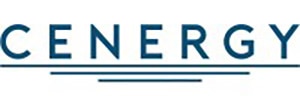
$66.5 Million
Senior Secured Credit Facilities
Coordinating Lead Arranger
Depositary Agent
Collateral Agent
Administrative Agent
Summary
On December 17, 2025, KeyBanc Capital Markets Inc. (KBCM) successfully closed $66.5 million of Senior Secured Credit Facilities (the Facilities) in support of Cenergy Power (Cenergy), their IL Grounded III portfolio (the Portfolio) and in collaboration with ESP Solar LLC and Grounded ESP III LLC. The Facilities total a $26.2 million construction-to-term loan, $38.6 million in aggregate bridge loans, and $1.7 million in letters of credit, which will be utilized to fund the Portfolio’s construction costs. KBCM acted as Coordinating Lead Arranger, Depositary Agent, Collateral Agent, and Administrative Agent.
The Portfolio comprises four Illinois community solar assets totaling 20 MW across the Ameren and ComEd utility zones. All projects received the IL Shines REC awards and are expected to reach commercial operations in 2026.
This represents the second financing transaction between KBCM and Cenergy.
About Cenergy Power
Based in California, Cenergy is a leading national commercial solar developer with over 450 MWs of solar experience working with local communities and businesses.

acquired by
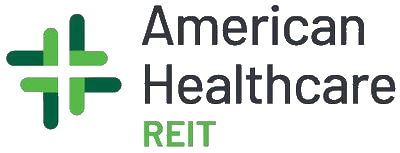
along with its operating partner
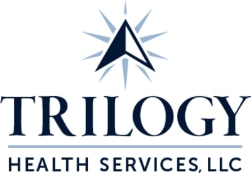
Exclusive Sell-Side Advisor
Summary
On December 16, 2025, KeyBanc Capital Markets (KBCM) successfully advised Kingston HealthCare Company, LLC (Kingston) on its sale to American Healthcare REIT, Inc. (AHR), along with its operating partner Trilogy Health Services, LLC (Trilogy). This strategic acquisition deepens Trilogy’s presence across Indiana and Ohio, strengthening its mission to make lives better for residents, their families, and their communities through exceptional care and service. KBCM served as Exclusive Sell-Side Advisor to Kingston.
Kingston HealthCare Company, based in Toledo, Ohio, operates 14 senior living communities and employs over 1,800 team members. Kingston has provided high-quality senior care for nearly four decades, earning a reputation for excellence, innovation, and a deep commitment to their employees and residents.
American Healthcare REIT (NYSE: AHR) is a self-managed real estate investment trust that acquires, owns, and operates a diversified portfolio of clinical healthcare real estate properties, focusing primarily on senior housing, skilled nursing facilities, outpatient medical buildings, and other healthcare-related facilities.
Trilogy Health Services, founded in 1997, is based in Louisville, Kentucky and operates more than 130 senior living communities throughout Kentucky, Indiana, Ohio, Michigan, and Wisconsin. Recognized for its outstanding clinical quality and innovative solutions, Trilogy serves more than 12,000 seniors and employs about 18,000 team members.

received a significant strategic investment from

Exclusive Financial Advisor
Summary
On December 15, 2025, KeyBanc Capital Markets (KBCM) successfully advised AtScale, the leading Universal Semantic Layer technology provider, on a significant strategic investment from Snowflake. KBCM was retained as the Exclusive Financial Advisor due to its strong capital-raising capabilities, as well as its industry-leading infrastructure software sector expertise, close relationships within the strategic ecosystem, and its ability to handle complex transactions.
AtScale enables smarter data-driven decisions by delivering a Universal Semantic Layer that unifies business logic, accelerates performance, and provides consistent metrics across BI tools and AI applications. As the pioneer of modern semantic layer technology, AtScale has helped leading enterprises turn their cloud data platforms into governed, scalable, analytics-ready environments for more than a decade. Recognized as a Leader and Fast Mover in GigaOm's 2025 Semantic Layer Radar, AtScale serves more global Fortune 500 enterprises in production than any other semantic layer provider.
Snowflake is the platform for the AI era, making it easy for enterprises to innovate faster and get more value from data. More than 12,600 customers around the globe, including hundreds of the world’s largest companies, use Snowflake’s AI Data Cloud to build, use and share data, applications and AI. With Snowflake, data and AI are transformative for everyone. Based in Bozeman, Montana, Snowflake trades on the New York Stock Exchange under the ticker SNOW.

acquired

Senior Secured Credit Facilities
Exclusive Debt Advisor
Buy-Side Advisor
Summary
On December 3, 2025, KeyBanc Capital Markets Inc. (KBCM) successfully advised Bessemer Investors (Bessemer) on an undisclosed amount in Senior Secured Credit Facilities to support its acquisition of Xanitos, Inc. (Xanitos or the Company). Proceeds will be used to fund the acquisition, support future M&A activity, and pay transaction-related fees and expenses. KBCM served as Bessemer’s Exclusive Debt Advisor and Buy-Side Advisor. KBCM was chosen to serve as Bessemer’s Exclusive Debt Advisor and Buy-Side Advisor due to its leading industry expertise, leveraged finance capabilities, and strong Sponsor relationship.
Xanitos is a leading healthcare environmental services platform providing critical support to hospitals and outpatient facilities. The Company offers a comprehensive suite of services, including environmental services, ambulatory cleaning, patient observation, patient transport, and laundry and linen management. These solutions help clients enhance cleanliness, safety, operational efficiency, and overall patient satisfaction.
Founded in 2018, Bessemer Investors is a private equity firm headquartered in New York that partners with middle-market businesses to drive growth and create value, focusing on sectors such as industrials, business services, and consumer products. Bessemer combines a long-term, flexible capital base with experienced private equity professionals to deliver tailored solutions and maximize sustainable value.

a portfolio company of
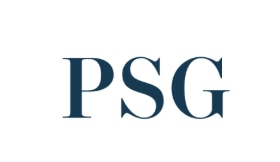
acquired by

Exclusive Financial Advisor
Summary
On December 1, 2025, KeyBanc Capital Markets (KBCM) successfully advised FluentStream Corp. (FluentStream or the Company), a leading provider of enterprise-grade business phone services for small and medium-sized organizations, on its sale to Ooma, Inc. (Ooma).
Founded in 2010, FluentStream is a cloud communications provider, offering voice, text, mobile, and call-center features. Under PSG’s ownership since 2018, the Company has grown significantly through a series of acquisitions and expanded partner programs. FluentStream is headquartered in Denver, Colorado, and serves approximately 80,000 users across North America.
Founded in 2003, Ooma (NYSE: OOMA) delivers phone, messaging, video, and advanced communications services. Ooma’s offerings include Ooma Office for small to medium-sized businesses; Ooma AirDial for businesses looking to replace aging copper phone lines; Ooma 2600Hz for businesses that provide their own communications solutions built on a white-label platform; and Ooma Telo for residential consumers who value a landline experience. Ooma is headquartered in Sunnyvale, California, and serves more than 2 million users across North America.

acquired

Buy-Side Advisor
Summary
Cain Brothers, a division of KeyBanc Capital Markets, served as exclusive financial advisor to HonorHealth in its acquisition of Evernorth Care Group from The Cigna Group (NYSE: CI).
Cain Brothers advised HonorHealth throughout a competitive process, providing strategic guidance, diligence support and transaction execution. The acquisition expands HonorHealth’s footprint in the Phoenix area and underscores its commitment to delivering coordinated, high-quality care.
HonorHealth is a leading health system with a 100+ year legacy of providing care to the more than five million people across the greater Phoenix area. The system operates nine acute care hospitals and a broad network of primary, specialty, and urgent care locations. HonorHealth focuses on expanding access and enhancing care delivery through strategic partnerships and innovation.
Evernorth provides care for nearly 200,000 patients in 18 locations across the Phoenix area. The organization has a 50-year history of providing integrated, high-quality, affordable care and is recognized for its team-based, patient-centered model.
The Cigna Group is a global health company serving individuals and communities worldwide through its divisions, including Cigna Healthcare and Evernorth Health Services.

agreed to an affiliation agreement with

Financial Advisor
Summary
Cain Brothers, a division of KeyBanc Capital Markets, acted as exclusive financial advisor to Blue Cross and Blue Shield of Kansas City ("KC") on its pending affiliation with Highmark, Inc ("Highmark").
Cain Brothers was engaged to identify an optimal partner that could help achieve efficiencies, add new capabilities, and drive more affordable health care. Through this affiliation, Blue KC will maintain its local leadership, brand, and commitment to accessible and affordable health care, while gaining access to Highmark’s scale, diversified businesses and leading technology capabilities. This affiliation further solidifies Cain Brothers’ managed care franchise and demonstrates its unparalleled experience advising BCBS plans.
Serving members since 1938, Blue Cross and Blue Shield of Kansas City is the largest not-for-profit health insurer in Missouri and the only not-for-profit commercial health insurer in Kansas City. Blue KC provides health coverage services to more than one million residents in the greater Kansas City area, including Johnson and Wyandotte counties in Kansas and 30 counties in Northwest Missouri. Blue KC's mission: to provide affordable access to healthcare and to improve the health of its members.
An independent licensee of the Blue Cross Blue Shield Association, Highmark, Inc., together with its affiliates, collectively comprise the fifth largest overall Blue Cross Blue Shield-affiliated organization in the country with more than 7 million members in Pennsylvania, Delaware, West Virginia, and western and northeastern New York. Its diversified businesses serve group customer and individual needs across the United States through dental insurance and other related businesses.

acquired
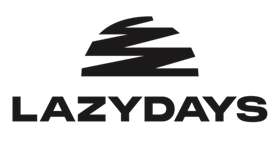
$232 Million
Exclusive Buy-Side Advisor
Summary
In late November 2025, KeyBanc Capital Markets (KBCM) successfully advised Campers Inn, Inc. (Campers Inn or the Company) on its acquisition of Lazydays Holdings Inc. (Lazydays).
KBCM was selected to serve as Campers Inn’s Exclusive Buy-Side Advisor based on its industry-leading specialty distribution practice, long history of transaction success within the recreational products industry and track record of successful M&A execution.
Campers Inn is a leading, family-owned and operated distributor of recreational vehicles and related services. Founded in 1966, the Company offers a wide selection of new and pre-owned recreational vehicles, parts, accessories and maintenance solutions to retail customers nationwide. Headquartered in Jacksonville, Florida, the Company operates more than 50 dealership locations throughout the country post-acquisition. Campers Inn maintains relationships with over 30 industry-leading OEMs to provide a diversified product portfolio to their customers.
Headquartered in Tampa, Florida, Lazydays is a leading provider of new and used recreational vehicles and service solutions throughout the United States. Founded in 1976, Lazydays has developed a strong reputation for providing premier customer experience, supported by exceptional service and unparalleled product expertise. Lazydays operates across 13 facilities nationwide, offering a full suite of solutions, including sales, service, parts & accessories, financing and maintenance, creating a one-stop-shop platform for its customers. Lazydays was formerly a publicly listed company on the Nasdaq stock exchange (GORV).

$594.7 Million
Senior Secured Credit Facilities
Joint Lead Arranger
Administrative Agent
Collateral Agent
Depository Bank
Summary
On November 21, 2025, KeyBanc Capital Markets Inc. (KBCM) successfully closed $594.7 million of Senior Secured Credit Facilities for Clearway Energy Group’s (CEG or the Sponsor) Rosamond South II and Spindle (the Projects), two utility-scale battery energy storage systems in Kern County, California and Weld County, Colorado. The Facilities are comprised of a $242 million dollar construction-to-term loan, a $262 million dollar tax equity bridge loan, a $17.6 million dollar cash equity bridge loan, and $73.1 million in letters of credit. Proceeds will be used to fund the construction and operating periods of the Projects. KBCM acted as Joint Lead Arranger, Administrative Agent, Collateral Agent, and Depository Bank.
The Projects consist of a combined 291 MW/958 MWh in the CAISO and WECC power markets and will generate revenue through 15- and 20-year power purchase agreements with an investment-grade utility and the Public Service Company of Colorado.
This represents the 22nd transaction between CEG and KBCM, and the fifth transaction in 2025.
About Clearway Energy Group
Clearway Energy Group’s vision is a world powered by clean energy. Along with our public affiliate Clearway Energy, Inc., our portfolio comprises over 13 GW of gross generating capacity in 27 states, including over 2.8 GW of flexible dispatchable power generation, 10.3 GW of battery energy storage, solar, and wind assets providing critical grid reliability services. As we develop a nationwide pipeline of new energy projects for the future, Clearway’s operating fleet generates enough reliable electricity to power more than 2 million homes today. Clearway Energy Group is headquartered in San Francisco with offices in Denver, Houston, Phoenix, Princeton, and San Diego. For more information, visit https://www.clearwayenergygroup.com.
Our Expertise
Explore the latest information and expertise from our team of industry specialists covering solutions for capital growth, business expansion, and financial strategies.
Banking products and services are offered by KeyBank National Association. All credit products are subject to collateral and/or credit approval, terms, conditions, and availability and subject to change.
Key Wealth, Key Private Bank, Key Family Wealth, KeyBank Institutional Advisors and Key Private Client are marketing names for KeyBank National Association (KeyBank) and certain affiliates, such as Key Investment Services LLC (KIS) and KeyCorp Insurance Agency USA Inc. (KIA).







